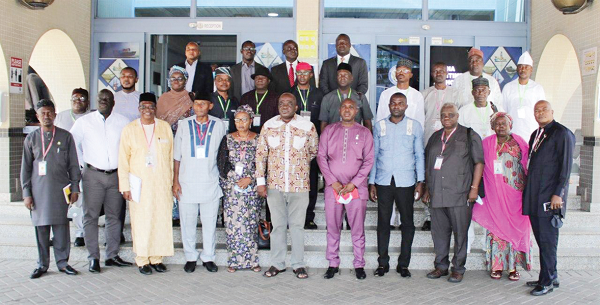
Maritime Authority tackles insecurity in Ghana’s waters
The Ghana Maritime Authority (GMA) has started the process to upgrade its Vessel Traffic Management and Information System (VTMIS) to address issues of insecurity within Ghanaian waters.
The project will see the installation and integration of underwater surveillance equipment into the VTMIS to ensure adequate protection of subsea structures such as drill wells, submarine communication cables, gas pipelines and the like.
The upgrade, according to the Director, Technical at the GMA, Capt. Inusah Abdul Nasir, would strengthen the various vessel monitoring centres in the country to detect possible piracy and hijacking incidents at sea.
Context
Ghana´s response to the security threats in the Gulf of Guinea, as part of the ECOWAS Maritime Security Architecture, was supported by the development partners from 2011 to 2013 to develop an integrated VTMIS.
It was to improve safety of navigation, control and monitoring of the traffic within waterways, protection of the environment and simplify port planning and overall surveillance in Ghana.
The system, however, is undergoing rehabilitation to upgrade its operational levels, in line with technological advancement, to improve surveillance at sea.
Further checks by the Daily Graphic indicated that the upgrade would also come with remote sensor sites, consisting of electronic surveillance equipment installations such as radars, automatic identification systems, close circuit television cameras, VHF, as well as weather and temperature sensing equipment.
The upgrade will facilitate easy communication with and surveillance of the entire territorial waters and exclusive economic zone by the national and area control centres.
Study tour
Speaking during a familiarisation visit to the GMA by participants in an executive management course from the National Institute for Security Studies (NISS), Nigeria, Capt. Nasir noted that upgrading the technology would ensure live camera coverage of vessels beyond 12 nautical miles off the territorial seas.
The tour, on the theme: “Piracy in the Gulf of Guinea: Issues and challenges for international trade, national security and sustainable development of member states”, was aimed at getting the participants to understand Ghana's piracy experience and its impact on sustainable development.
Security issues
Capt. Abdul Nasir, who briefed the participants on security and strategic issues, said whereas issues of security in the Gulf of Guinea continued to be a concern for the sub-region, there was the need to collaborate and also adopt the use of technology to address the challenges.
“The use of low earth polar orbit satellites to process radar images for effective image acquisition of small wooden vessels, which will also be capable of detecting oil spills, is key to addressing issues of safety within the Gulf,” he told the participants.
Capt. Nasir expressed worry about what he said were deliberate automatic identification system (AIS) receivers switching off on small wooden fishing boats, especially to avoid being caught by the enforcement of regulations on illegal fishing and illegal logging, among other illegalities.
“There are instances when vessels deliberately switch off their AIS receivers and it thus becomes difficult to identify them under the radar,” he explained.
Unsafe environment
The Director-General of the GMA, Mr Thomas Kofi Alonsi, stressed the need to focus on the development of the African maritime sector by way of investments in infrastructure to facilitate trade to create avenues for employment.
However, he added, “the environment within which these developments ought to be envisaged is not safe”.
He said West Africa’s maritime trade route was faced with numerous illicit activities, with armed robbery at sea and piracy gaining currency.
Piracy, he stressed, was a transnational crime that would require a joint approach at national and regional levels to address.
Describing the visit as a sign of regional collaborative efforts to jointly understand the issues of piracy in the Gulf of Guinea and its challenges to international trade and development,
Mr Alonsi expressed the hope that the experiences shared would go to enhance the harmonisation of processes among countries in the Gulf to effectively address security situations in the maritime domain.
Participants
The Deputy Commandant of the National Institute for Security Studies of Nigeria, Mr Didacus Egbeji, who led the delegation, said the tour, which took other participants to Benin, Congo and Gabon, was to share ideas on threats of piracy and maritime crime and what the respective countries were doing to tackle them.
“If we all share ideas to identify the challenges, the sub-region could come up with solutions and better ways of handling piracy,” he said.
The participants, he said, also had fruitful deliberations with state actors, such as the Ghana Navy, the Customs Division of the Ghana Revenue Authority (GRA) and National Security, since the essence of the programme was to foster collaboration with agencies in member states.